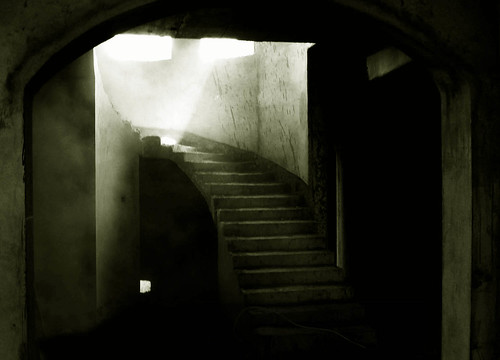(Another sermonette, of sorts.)
We call it a “church home,” but sometimes it’s … not.
At least, not home like a family home: a somewhat secure and comfortable family place where we spend a portion of our time, sometimes relaxing and eating and pursuing interests that captivate us and other times doing housework and chores and routine maintenance. Not a home that is a central gathering place or a base of operations for the time when we’re not at school or the office or the gym or wherever.
No: too often it seems more like a “home,” a rest home, an assisted living facility where the good church people hang out with the good church people and do good-church-person things. At these rest-home churches, we don’t often look beyond the church walls to see what we can do to make the world a better place. (Stained-glass windows are hard to see through.)
We’re shut-ins, and too often we shut out the world.
That’s not universally true, of course (but so little is). Some churches function fairly effectively as temporary refuges, where believers can refresh themselves before going back out into work and life and service. Some churches, though, appear to be permanent refuges, strongholds against the world, as if Christ had said “take yourselves out of the world” instead of telling us to be “in the world, but not of it.”

Stained-glass windows can be beautiful, but they’re not easy to see through. (Image: The “Space Window” at the National Cathedral. NASA photo.)
In a similar vein, we may call it a church “family,” but sometimes it’s not. Many churches do have a family atmosphere in which believers support one another and help one another through crises — even if it is dysfunctional at times, it’s still a caring family that does the best it can. Sometimes, in some respects, it can be better than a real family; sometimes it can be far worse.
But we don’t often mean a family like real relations in a household, in which — if we do it right — we encourage one another to grow and reach for the dreams that drive us, in which we learn right and wrong and discover our talents in order to make our way out in the world. As a church, nurturing young believers into mature believers — making disciples — we don’t always do so with the intention of preparing them to serve and live out their faith outside the church, in the real world. Often our attention is turned inward, as if serving the church and the church family is the single most Holy-Spirit-approved way of glorifying God.
But Christ didn’t tell his Disciples to stay in Jerusalem and serve only each other. And Christ doesn’t tell us to stay in the church and serve only each other.
Lord, forgive me when I prefer to stay safe in the cloister instead of walking with you in the wider world.











